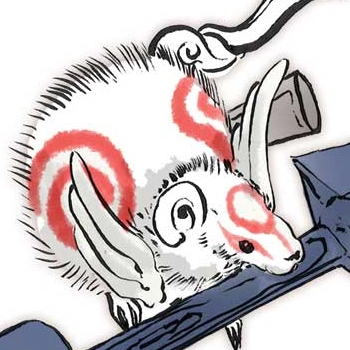I could be wrong here, but it seems to me that a common aspect amongst all languages is the tendency to raise the pitch of your voice slightly when asking a question. Especially at the end of a question sentence.
If I’m wrong about this raised pitch being common amongst all languages, at the very least do all languages change their tone slightly to indicate that a question is being asked?
I guess there needs to be some way to indicate what is and isn’t a question. Perhaps a higher pitched voice reflects uncertainty. Is this something deep rooted in humans, or just an arbitrary choice when language developed?


That’s just emphasis. You can tell because you can shift it to another word.
But the default stress towards the end of the question is what makes it a question.
You can move the stress to another word for emphasis on yes-no questions, too, similarly removing the “rising intonation” that makes a question.
E.g., “Do you want any cheese^?” vs. “Do you WANT any cheese?” (Falling intonation after “want”)